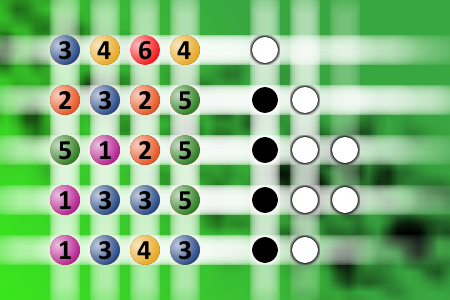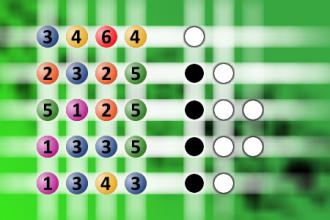Which is a winning combination of digits?
The computer chose a secret code (sequence of 4 digits from 1 to 6). Your goal is to find that code. Black circles indicate the number of hits on the right spot. White circles indicate the number of hits on the wrong spot.Correct answers: 34
The first user who solved this task is Nílton Corrêa De Sousa.
#brainteasers #mastermind

Quiet wife
A man's wife is sitting in the backseat while he's driving.
A cop pulls him over and says: Your wife fell out of the car about a mile back.
The man says: Thanks, I thought I'd gone deaf.
Author:gagga_hai

